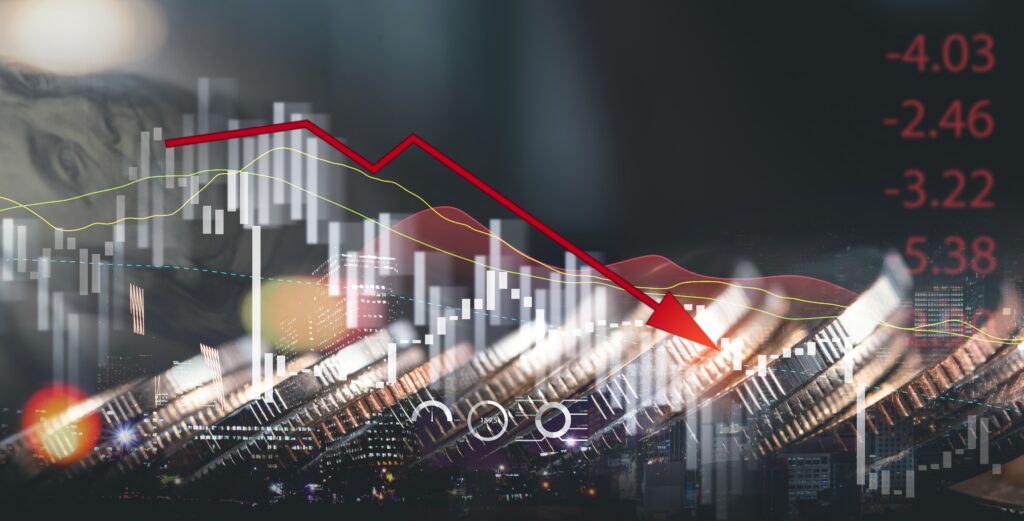term effects of the US-Europe trade dispute. As tariffs rise, many fear this could hurt global trade.
The European market is reacting to the ongoing tensions between the US and the EU. Both sides have imposed tariffs on each other’s goods, and neither is willing to back down. The fear is that these trade barriers will only increase and damage the global economy.
US Stocks Suffer Huge Losses
In the US, Wall Street also struggled. Major US stock indices saw huge losses. At the start of Monday’s trading session, the S&P 500 dropped by 3.2%. This pushed the index into bear market territory. The Nasdaq Composite, which tracks tech stocks, fell by 3.9%. The Dow Jones Industrial Average also lost 3.2%.
There was some hope early in the day as stocks briefly recovered. But the optimism didn’t last long, and the market fell back into the red. The sell-off was triggered by the uncertainty surrounding tariffs, particularly between the US and Europe.
Trump Denies Intentional Market Chaos
President Donald Trump addressed the market turmoil during a press briefing. He denied that his trade policies were causing the sell-off in the stock market. He stressed that his goal was to reduce the US trade deficit, not to destabilize the market.
“We put a big tariff on Europe,” Trump said. “They are coming to the table. They want to talk, but there’s no talk unless they pay us a lot of money on a yearly basis—not just for the present, but also for the past.”
Trump’s comments highlight his tough stance on trade. He believes the US has been at a disadvantage for many years. However, critics warn that his tariffs could hurt the US economy and cause further market instability.
Financial Reparations: Trump’s Demand
Trump has been clear about his demands. He wants European nations to pay reparations for trade imbalances that have existed for years. The US president argues that these payments are necessary to make up for past trade deals he views as unfair.
Europe has resisted these demands. European leaders are unhappy with the tariffs imposed by the US and have made it clear that they will not pay reparations. They argue that trade should be based on fairness, not punishment.
The Broader Impact of Trade Tensions
The growing trade tensions between the US and Europe are starting to hurt the global economy. If tariffs continue to rise, it could disrupt global supply chains and harm businesses. The cost of goods could also increase, leading to higher prices for consumers.
For investors, the uncertainty caused by these trade disputes is troubling. Many are worried that the tariffs will slow down global economic growth. As a result, markets around the world are reacting negatively.
Europe’s Response to Trump’s Demands
European officials are carefully monitoring the situation. The EU has pushed back against Trump’s tariff policies. European leaders have said they are willing to negotiate, but they do not want to be forced into financial reparations.
As tensions rise, it remains to be seen how both sides will find common ground. Trump’s demands for reparations are not likely to be met, and the EU will continue to resist his approach. The ongoing trade dispute may lead to more tariffs or new economic sanctions.
The Path Ahead for Global Trade
The future of global trade is uncertain. The trade war between the US and Europe has the potential to affect economies around the world. Both sides will need to find a way to resolve their differences, or the global market may continue to suffer.
For now, markets will continue to react to the news from both the US and Europe. Investors are anxious about the outcome of the trade dispute and its effect on their portfolios. The coming weeks could bring further volatility.
As the US and Europe try to reach a resolution, global markets will be watching closely. The trade dispute has already caused significant losses, and more instability is possible if an agreement isn’t reached soon.


